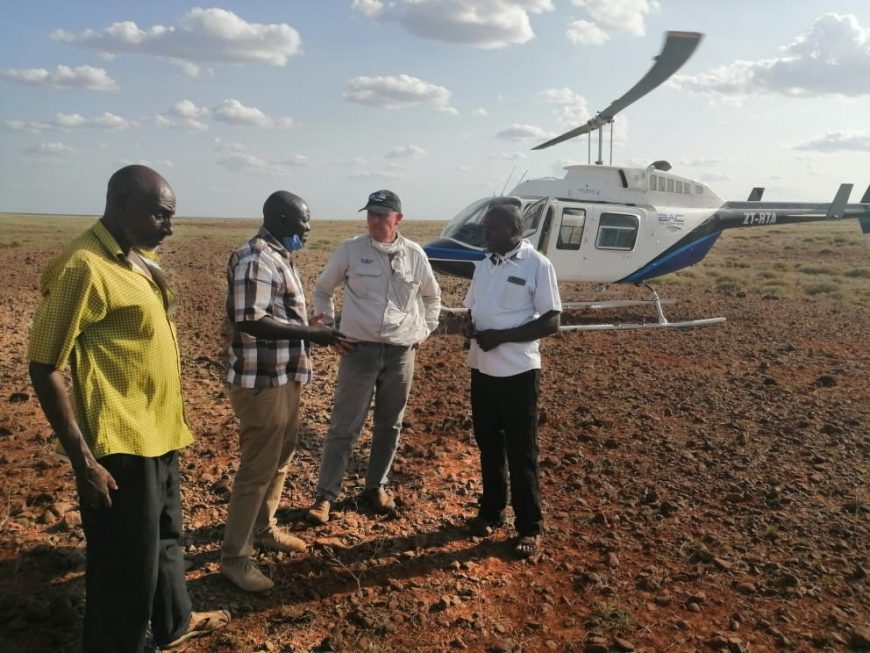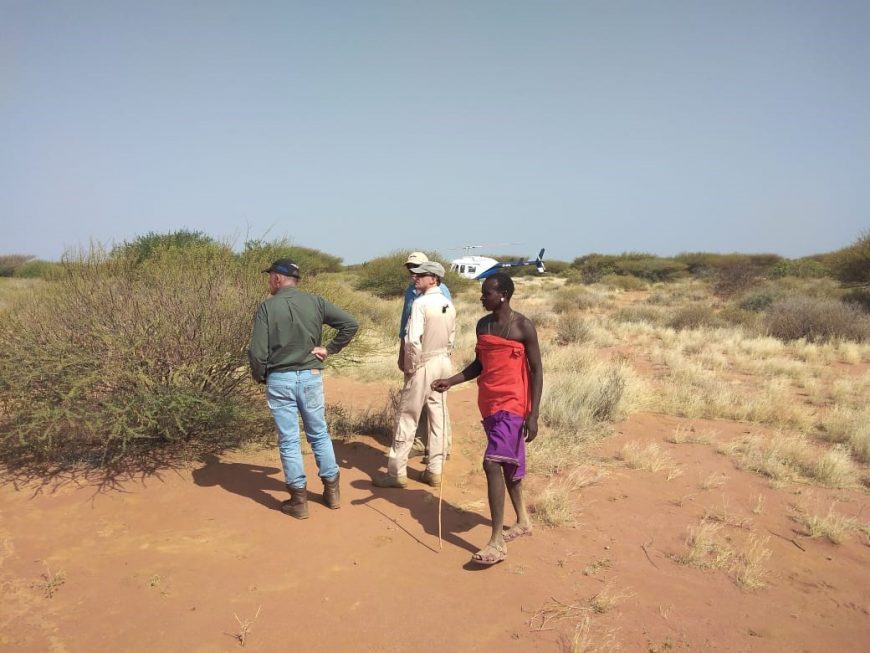In response to the desert locust upsurge in Kenya, ACTED is supporting aerial desert locust control and surveillance in Laisamis sub-county (Marsabit county).
Aridity and desert-like conditions within Marsabit County set a fertile breeding ground for desert locusts. They have been wreaking havoc to pastoral and agro-pastoral livelihoods since February 2020. Ground surveillance has been wearisome considering the geographical coverage of the county.
ACTED is supporting the establishment of desert locust surveillance and control teams, supporting the efforts in ensuring that the desert locust invasion is controlled effectively in four affected counties in Kenya, including Marsabit.
Desert locusts pose a great risk to food security for humans and feed security for livestock in the affected areas, and across livelihoods. The desert locust is considered the most destructive migratory pest in the world, as it is highly mobile and feeds on large quantities of any kind of green vegetation, with an adult consuming roughly its own weight in fresh food per day. An average swarm consumes the same amount of food in one day as 2,500 people. Kenya is currently experiencing a desert locust upsurge, the worst the country has seen in 70 years. The first swarms appeared in the northeast region of the country in December 2020, spreading rapidly at an alarming rate, threatening livelihoods and food security of an already vulnerable population in several counties. The threat to food security has been growing as desert locusts hatch into disastrous marching hoppers bands and flying swarms.
Supporting locust early-warning systems
With support from FAO, ACTED has been supporting the government and ground surveillance teams, with over 60 scouts and 10 government officers from the Ministry of Agriculture engaged to enhance early warning mechanisms for desert locust control, supporting control and surveillance operations to increase the resilience of livelihoods to threats and crises in desert locust affected Counties in Kenya. To complement this effort, FAO and the national government have provided helicopters to conduct surveillance in hard-to-reach areas, which is linked to reporting on the web-based Elocust 3M app.
Using the E-locust 3M app, ground teams provide reports on desert locust presence on a daily basis
This supports aerial team in mapping infested rangelands.
ACTED is supporting the establishment of desert locust county management teams to ensure surveillance and control efforts. Using the E-locust 3M app, ground teams provide reports on desert locust presence on a daily basis. This information is then collated and shared with Base Managers. In June 2020 alone, 65 users reported on the app, supporting the aerial team to map and spray over 2,000 hectares of infested rangelands in areas where adult locust were roosting or laying eggs.
In areas where ground control isn’t feasible, a helicopter is dispatched to map out affected areas through aerial transects between 2-10 Km apart. Working with the community scouts who have good geographical knowledge of the area and the local language, and with ACTED support, the data collected is uploaded to inform decision making and trends analysis. The team lands in various locations to verify received information with residents. At the end of a surveillance day, maps are drawn to inform spraying. Through these eyes in the sky, ACTED is working towards increasing the resilience of livelihoods to threats and crises in four desert locust affected Counties, including Marsabit.

